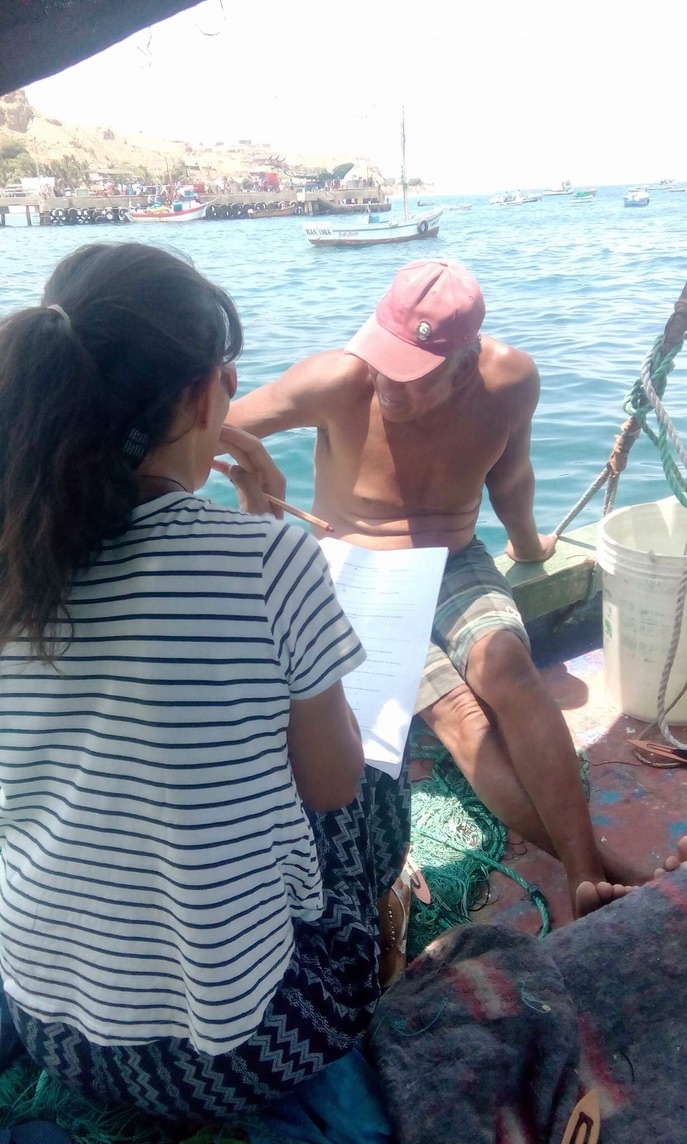Lucie Guirkinger: Her Path to Becoming a Marine Megafauna Ambassador
BY MICHAELA FARNHAM
Meet Lucie, a passionate marine megafauna ambassador and read about her journey to pursue her dreams.
Hey Lucie! Tell us a bit about yourself.
Hey everyone! I’m half French and half Colombian, and have lived in France, Belgium, Peru, Dominican Republic, Australia and the UK as my family moved around a lot for my Dad’s job.
I love adventures, often going on trips to get to know different cultures and go hiking to be immersed in the different landscapes around the world.
You’ve built your life around the ocean. What drew you to it in the first place?
No matter what the colour the ocean looked like from the shore, the thought of there being so many different creatures and places underneath really caught my attention, and even to this day, the more I learn about it the more I realise there is so much we need to discover and learn from it.
Lucie frolicking with a bunch of furry friends! Photo Lucie Guirkinger
Describe the path you took to where you are now.
When living in the Dominican Republic I grew concerned about the impact of local tourism on the marine fauna and flora. I decided to do a dissertation on the impact of tourist boats towards the marine environment and to work with FUNDEMAR, an NGO working on coral reef restoration, dolphin populations monitoring and turtle nest and egg protection. Having first-hand experience of the different marine issues and actions taken to tackle these has really been inspiring and really made me want to understand species’ biology and ecology better, to understand people’s behaviour and impacts towards oceans..
I then went to Australia to do a semester of a master’s degree in Marine Biology and Ecology at James Cook University, this was mind blowing! People from around the world having the same passion and being lectured by experts in various marine fields was sure to teach me a lot more about oceans, from laws surrounding it, to marine spatial planning, to the biology and ecology of various species.
During my time there I volunteered for the Dwarf Minke Whale Project, and that was the point where I decided I wanted to work for marine megafauna conservation. I have just finished my master’s at the University of Cambridge, investigating the reasons for non-compliance by fishermen towards the manta ray fishery ban in Peru and looking at their Local Ecological Knowledge of the species. I am now looking for a career to keep working with these amazing creatures and can’t wait for what’s ahead!
Free-diving her way to her underwater dreams! Photo Lucie Guirkinger
How do you hope your voice and work will influence others?
I would really like my work to help motivate people of all ages and cultures to be more environmentally friendly, understand marine species, respect them and aid in their conservation.
What other hobbies & dreams are you pursuing?
Social media has played an important role, as such I aim to get a drone and shoot small videos about diverse marine megafauna conservation topics, and take a graphic design course along with other courses to not have dreadful videos for you to watch!
Who or what do you draw your inspiration from?
My mother is my main source of inspiration, she’s always told me nothing is impossible, that failure is part of the process and that has helped me build myself, travel through challenges and achieve things I at first thought would not be possible, like being accepted into the University of Cambridge.
I do think every person I know has an inspiring attribute that I aim to apply to myself and in such a way as to inspire others.
Lucie hard at work with local fisherman in Peru. Photo Lucie Guirkinger
Whose work has influenced and inspired you?
Many scientists have done inspiring work that let us today progress into further knowledge and making better decision for the marine environment.
For my masters, Dr St John’s and Dr Diedrich’s work have inspired me as they have combined sociology into marine conservation to understand human behaviour, one of the most important aspects for marine conservation.
What is one thing you wish someone had told you a long time ago?
I thought it was only once I completed studies that I could really start to take action and have an impact on people concerning marine conservation, but actually one can start whenever, as long as there is passion and an understanding of the subject.
Where do you go from here?
I am looking to combine both research and applied work with stakeholders on several projects in the tropics, all to conserve marine megafauna!
Follow Lucie @lucieguirk



